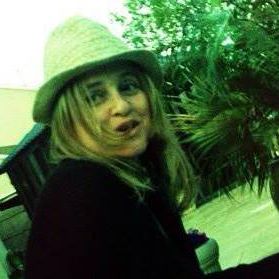TV is known as a better place for writers than any of the other dramatic media, with the sole exception of the theater, of course. Besides, TV drama is nowadays so highly regarded that it is already changing some of the old rules regarding old industry traditions. The crossover of the boundary between cinema and TV, whereby writers can move once again from one medium to the other, with greater ease, is one of the changes. It remains to be seen whether the crossover experiment will affect the writer’s importance in other media too – especially in film.
In television, writer-producers write their own scripts and they rewrite other people’s scripts; it’s their show and their vision. In the movies, it’s all about the director. As opposed to movies where the writer won’t even be on set, in TV it is the writer who tells the director what to do. In my book Inside the Writers’ Room, Tim Van Patten talks about the tone meeting from the point of view of the director. This is the meeting where the director sits down with the writer-producer and the writer of the episode, the line producer and the first AD and they run through the script and trade notes or suggestions. “On Sopranos that tone meeting would happen in the middle of your prep and the director called it ‘defending your life,’ because you would go in there and normally the writer would go through the script and you would sort of take notes and it was a lot of pressure. It was very stressful, because you had to say how you were going to approach the scene, what you thought it meant.” Clearly, in TV it is the director who feels the pressure and who has to pitch her approach. Will this change now that more and more feature film directors cross over to TV? Will they bring their mentality with them? Or will they be educated in a different way of working and eventually even bring it back to the movies, changing the prevailing mentality there?
Surely the most difficult crossover for a writer is from the theater to the movies. Diana Son talks about the ultimate writer’s shock: “You’ve been in the theater where you are the most important person in the world and no one is in that room unless the playwright is there . . . and you go to the cinema, where you are not even invited to the set . . . ” In TV even a staff writer goes on set – which is perhaps why TV has become the place where writers go to make a living.
It may sound like a point of courtesy, even a detail, or at most a demonstration of power, whether a writer is on set or not, but it is not. In fact it is one of the most important factors behind American TV drama’s success, perhaps even more so than the writers’ room concept. The fact that the writers are on set allows for better writing. Good writing is writing which is changeable till the very end. Listening to the actors and their emotional evolution, and allowing the storylines to obey that instead of the storylines forcing the characters to do things that they are not yet ready for is one of the important aspects of that writing approach. But that presupposes the presence of the writer on set and during the whole process. I will suggest that ultimately, it is that which makes for great writing and which is missing from the movies. When the writer is kept out of the process, the writing does not evolve – or evolves without the involvement of the person who has conceived of the story and the characters and who knows their finest nuances.
Next Up: Post #9: The Real Secret of Success of American TV, Part II
If you are interested in reading more, including the full interviews on their process as writers with creators such as Terence Winter, Tom Fontana, Warren Leight, Robert Carlock, Janet Leahy and many more, you can purchase the book Inside the Writers’ Room. Conversations with American Writers here.
 Christina Kallas has written and produced several feature films and TV shows in Europe before she relocated to New York in 2011, where she is currently teaching at Columbia University’s and Barnard College’s Film Programs, and editing her next feature film (and her first as a director,) 42 Seconds of Happiness. She is the author of six books in her three writing languages, including the above book as well as Creative Screenwriting: Understanding Emotional Structure (London/New York, 2010). Most recently, she was honored for her outstanding contribution to the international writers’ community in her eight years of tenure as President of the Federation of Screenwriters in Europe. You can reach her at improv4writers@gmail.com and follow her on Facebook or Twitter and join the Writers Improv Studio group page for updates.
Christina Kallas has written and produced several feature films and TV shows in Europe before she relocated to New York in 2011, where she is currently teaching at Columbia University’s and Barnard College’s Film Programs, and editing her next feature film (and her first as a director,) 42 Seconds of Happiness. She is the author of six books in her three writing languages, including the above book as well as Creative Screenwriting: Understanding Emotional Structure (London/New York, 2010). Most recently, she was honored for her outstanding contribution to the international writers’ community in her eight years of tenure as President of the Federation of Screenwriters in Europe. You can reach her at improv4writers@gmail.com and follow her on Facebook or Twitter and join the Writers Improv Studio group page for updates.





